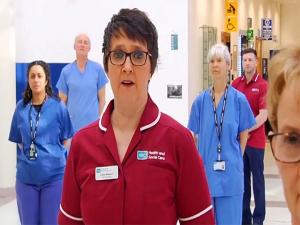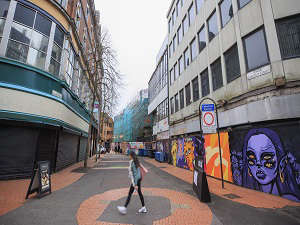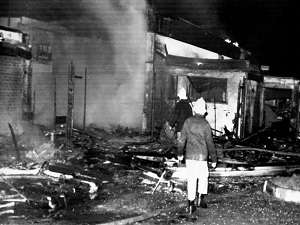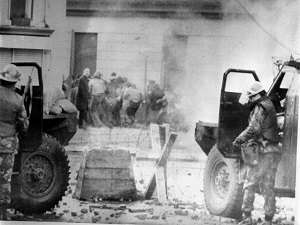
Q Radio News
The Public Record Office of Northern Ireland (PRONI) is calling for the public's help in creating an archive of life during the Covid-19 outbreak to ensure the story's preservation for future generations.
PRONI's Stay Home Memories project will capture experiences of the pandemic through documents, photographs, art, videos and diaries.
Since lockdown came into effect on March 23, households have been innovative in adapting to life behind doors, including celebrating milestones and finding new ways to communicate, shop, exercise and entertain themselves.
Videos that have gone viral include the poignant message from staff at Belfast Trust to Stay Home, local comedian Paddy Raff’s hilarious family Zoom quiz and the Ashfield Boys’ High School virtual performance of Thank You Baked Potato with Matt Lucas.
🎥 Hospital heroes with chilling #COVID19 appeal. Belfast respiratory team warns we're in the greatest medical crisis of our lifetime, this is the crucial time not a rehearsal, you will only have one chance at this, we beg you:
— Q Radio News (@qnewsdesk) March 22, 2020
STAY AT HOME TO SAVE LIVES pic.twitter.com/bzrfIyAD23
The official archive is seeking recollections of how people home-schooled, shopped while socially distancing, clapped on doorsteps, returned to letter and diary writing, and turned living rooms into movie theatres, kitchen tables into work stations and gardens into obstacle courses.
Communities minister Deirdre Hargey said: "The archives at PRONI constitute the official community memory of all citizens here.
"The Covid-19 pandemic is an unprecedented event that has affected every individual not just here but across the world."
PRONI has recently marked centenaries of anniversaries of other global crises including the First World War and Spanish flu.
The minister added: "The reason we have such a good understanding of these events and their impact upon society is because of the records we kept.
"PRONI has a key role to ensure that the story of the pandemic is preserved and made accessible so we have an official collective memory of the impact of Covid-19."


 Police launch murder probe following ‘brutal and senseless’ death of woman
Police launch murder probe following ‘brutal and senseless’ death of woman
 More than 5,000 NI children set to spend Christmas in temporary accommodation
More than 5,000 NI children set to spend Christmas in temporary accommodation
 No evidence of police collusion in 1978 La Mon bombing
No evidence of police collusion in 1978 La Mon bombing
 Sex offender who targeted girls online across the UK jailed for 27 years
Sex offender who targeted girls online across the UK jailed for 27 years
 Pre-trial rulings due in Bloody Sunday prosecution of Soldier F
Pre-trial rulings due in Bloody Sunday prosecution of Soldier F